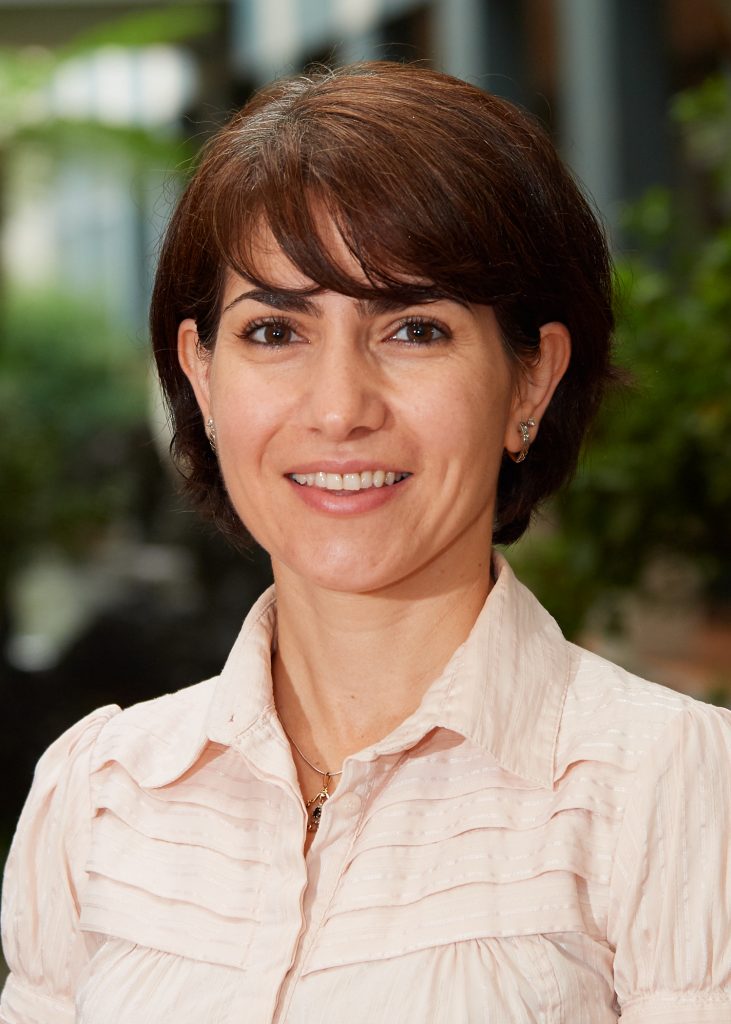New weapon in fight against infections
“For many of the patients we are treating, it’s life or limb saving,” said Dr Ameneh Khatami, from The Children’s Hospital at Westmead.
Development of a potentially life and limb-saving treatment for severe antimicrobial-resistant infections is gathering pace with vital support from NSW Health. Bacteriophage, or phage therapy, is giving many children and their families hope where other more conventional options have failed.
Phages are viruses found in abundance in soil, water and even our guts, and can be purified to target and kill bacteria in humans. Although they were discovered more than 100 years ago, they have only recently emerged as a formidable weapon in the global battle against antibiotic resistance.
At the forefront of this medical revolution is Dr Ameneh Khatami, an infectious diseases paediatrician and researcher at The Children’s Hospital at Westmead. She is also a Senior Lecturer in Child and Adolescent Health at the Westmead Clinical School and Deputy Director of Clinical, Therapeutics and Trials at Phage Australia, a network of researchers and clinical scientists dedicated to translating phage therapeutics into clinical practice.

World-first phage therapy protocols
Dr Khatami is one of a select few doctors in Australia to have treated patients with phage therapy. In conjunction with Phage Australia, Dr Khatami developed the world-first Standardised Treatment and Monitoring of Phage Therapy (STAMP) protocol for a clinical trial that is now recruiting adult and paediatric patients. Many hope the results of this clinical trial will enable many more patients to receive phage therapy both in Australia and internationally.
“The STAMP protocol is the first of its kind,” Dr Khatami said. “Countries like Singapore, the UK and Canada are now asking to use it, and to have everyone in Australia who are using phage therapy, to be dosing and monitoring in the same way enables us to collect objective, standardised data.”
In Australia, while phage therapy is still considered experimental, 15 adults and four children (with sepsis, bone infections and cystic fibrosis-associated lung infections) have so far been successfully treated in conjunction with antibiotics.
“For many of the patients we are treating, it’s life or limb saving,” Dr Khatami said. “The patients and their families are desperate. In our first cystic fibrosis patient, a young girl, we were able to completely cure the infection; in another case, the best we could do was to stop the rapid progression of disease. We select phages that we think will work in the lab, but there is still much we have to learn about their efficacy in the clinic.”

Ideal for children
Phage therapy works the same in adult and paediatric patients. Due to the safety profile, phage therapy is considered particularly ideal for children.
“Repeated doses of antibiotics can create huge toxicities and microbiome changes, with long-term effects on cardiovascular health and can elevate risks for conditions like asthma and diabetes,” Dr Khatami said. “Phage therapy is targeted and doesn’t disturb the microbiome, and doesn’t have the toxicity that antibiotics do, something very important when treating children.
“Newborns and especially premature babies can get some nasty antibiotic-resistant infections with high mortality rates. We believe phage therapy could be hugely beneficial in reducing the time that babies with infections spend in neo-natal intensive care units.”
Most recently, Dr Khatami received funding from NSW Health’s Office for Health and Medical Research – a partner of Phage Australia – to appoint a PhD candidate to further her important research. She envisages a time in the not-too-distant future when phage therapy may surpass antibiotics as the primary treatment for infectious diseases.
“We are hoping that five years from now phage therapy will be much more widely accepted and available,” she said. “For a while it will be an adjunct to antibiotics, but there are a lot of clinical situations for which phages may become the first choice, rather than waiting for antibiotics to fail.
Australia is leading the world in terms of the breadth and diversity of the team of clinicians and scientists at Phage Australia. “We have the clinical expertise at the bedside, the diagnostic and laboratory support across multiple specialties, and the deep science that is investigating how evidence will inform practice,” Dr Khatami said. “Nowhere else in the world has that and we are confident that with our multidisciplinary approach phage therapy has the potential to save many lives in the future.”
Updated 3 years ago